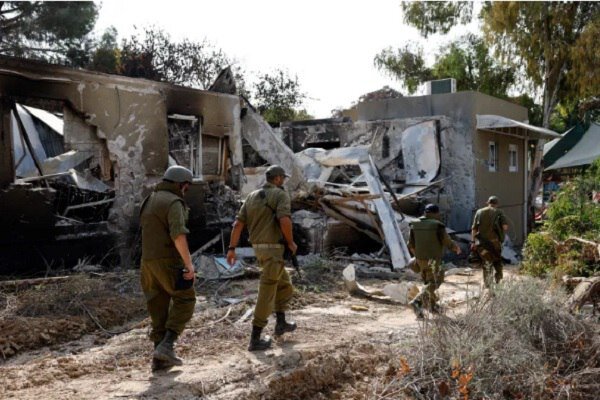The dangers of “Gideon’s Chariots” for Tel Aviv: widening the gap among Zionists.
According to Al Jazeera, since the beginning of May, the Israeli army has announced the launch of a major military operation in the Gaza Strip under the name “Gideon’s Chariots” and stated that its aim is to achieve the goals set in the Gaza war, especially the release of prisoners and the destruction of the Hamas movement, both on a military and political level.
Deep contradictions in the Gideon’s Chariots plan and its goals
However, the plan of this operation remains shrouded in ambiguity, and none of its declared goals have been achieved to date. In fact, an assessment of the situation conducted by the Center for Internal Security Studies at Tel Aviv University shows clear contradictions between the statements of the regime’s military sources and its political officials about the Gideon’s Chariots plan.
According to reports by researchers and analysts at the Center for Internal Security Studies at Tel Aviv University, it is not clear whether there is a real intention to implement all stages of the Gideon’s Chariots plan. In fact, some indications suggest that some of what has been announced about the Gideon Chariots plan may be a means of putting pressure on Hamas without actually implementing it.
Zionist analysts doubt the possibility of completing the Gideon Chariots plan in all its stages, stressing that there are many differences between the army and the cabinet about this plan, and that each of the political and military sides has its own calculations and interests in exaggerating or downplaying the success of the Gideon Chariots.
These analysts believe that the aforementioned contradictions indicate a lack of real consensus on the option of a military decision or achieving an absolute victory in the Gaza war. In addition, there are widespread internal disagreements between the army’s General Staff, headed by Eyal Zamir, and the cabinet, headed by Benjamin Netanyahu, on the feasibility of continuing military operations in Gaza or reaching an agreement on a prisoner exchange and a ceasefire that would guarantee the return of prisoners.
Despite the many uncertainties surrounding the Gideon Chariots plan and the disagreements among the political and military ranks of the Israeli regime over it, the statements of some officials of the regime raise concerns about intentions that may violate international law and potentially open the way for legal prosecution of the Zionists at the International Criminal Court in The Hague and the issuance of arrest warrants for several other political and military officials of the regime.
The dangerous consequences of the Gideon Chariots for the Zionists
According to a report prepared by Sharvit Baruch, director of the Israeli regime’s global research program, and Tommy Connor, coordinator of the Law and Homeland Security Program at the Institute for Homeland Security Studies of the regime, the Gideon Chariots plan raises numerous questions about its real objectives and the extent of its commitment to international law.
According to the report, the Gideon Chariots plan involves the evacuation of about 70 percent of Gaza’s population to the south of the strip by creating so-called humanitarian zones, which are run by private companies under the military supervision of the Israeli army.
Shiraivit Baruch says that Tel Aviv’s plan lacks the basic guarantees required by international law, such as providing vital needs and ensuring the safe return of refugees. There is also a risk that the temporary evacuation will lead to a systematic forced displacement of Palestinians, which would amount to a crime against humanity or even ethnic cleansing.
The Zionist researcher stressed that Tel Aviv’s intention to exercise long-term operational control over Gaza reflects its increased legal responsibilities as an occupying power, such as providing food, health, and basic services to the Palestinians. This is even though Tel Aviv is currently either unable or unwilling to fulfill these obligations. Tel Aviv’s growing international isolation, even from its allies, is considered a strategic threat, and the current cabinet’s extremist positions are also harming its position.
Tommy Connor, another researcher at the Institute for Internal Security Studies in Israel, said, “Amidst increasing pressure from the International Criminal Court and declining international support for Tel Aviv, we are faced with a major dilemma: how to fight an organization like Hamas within the framework of international law without committing crimes that will haunt our officials and forces in international forums in the future.”
He added, “Although the Gideon Chariots plan outlined clear goals such as the release of prisoners and the destruction of Hamas, contradictory statements among political and military ranks and ambiguity about the implementation stages raise growing concerns about this operation and its consequences.” Amidst the contradictory statements and many ambiguities, the army must draw clear lines between military planning and political directives and adhere to international law.
The Zionist researcher said that Gideon’s Chariots included a military maneuver to end Hamas’s existence in Gaza and extend the army’s control over the strip, along with a plan to provide aid through relief centers. But there may be hidden goals, such as forcing the displacement of Gaza residents and preventing their return under this plan, which violates international law.

